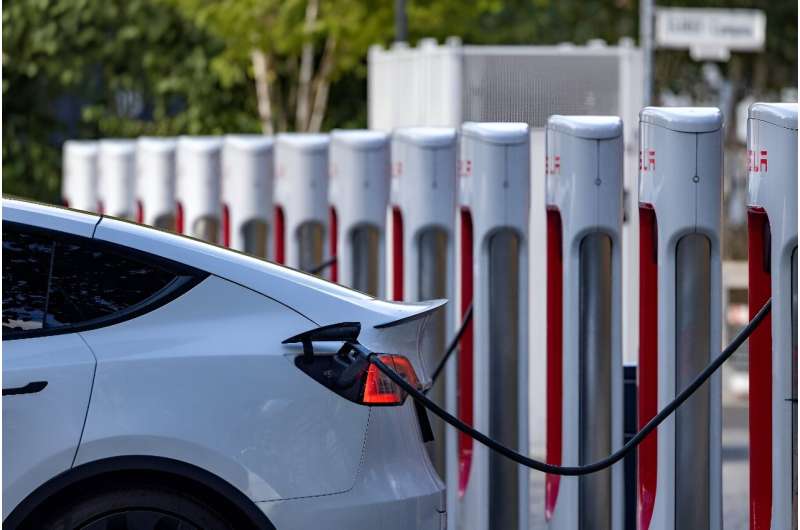A judge in the US state of Delaware voided the $56 billion compensation package of Tesla chief executive Elon Musk on Tuesday, siding with a shareholder who claimed the entrepreneur was overpaid.
The judge in Delaware Chancery Court ruled that the plaintiff, a Tesla shareholder named Richard Tornetta, was “entitled to rescission,” approving the annulment of Musk’s 2018 humongous compensation agreement worth as much as $55.8 billion.
Judge Kathaleen McCormick added that the parties must now “confer” and then submit a joint letter “identifying all issues, including fees, that need to be addressed to bring this matter to a conclusion at the trial level.”
The electric vehicle maker’s share price fell more than three percent in after-hours trading following the publication of the 200-page ruling.
In a message posted to X, formerly Twitter, shortly after the decision was announced, Musk—the world’s richest person—wrote: “Never incorporate your company in the state of Delaware.”
A lawyer for Musk did not immediately respond to a request for comment.
“We are enormously grateful for the court’s thorough and extraordinarily well-reasoned decision in turning back the Tesla board’s absurdly outsized pay package for Musk,” Greg Varallo, who represented the shareholders, said in a statement shared with AFP.
“The court’s hard work will redound directly to the benefit of Tesla investors, who will see the dilution from this gargantuan pay package erased,” he added.
‘Largest’ ever compensation opportunity
Musk’s 2018 compensation plan was “the largest potential compensation opportunity ever observed in public markets by multiple orders of magnitude,” McCormick wrote in her decision.
The unusual plan, valued at a maximum of $55.8 billion, would allow Musk to receive Tesla shares in 12 tranches, based on hitting certain performance criteria.
Musk was sued, along with Tesla and some other members of the company’s board of directors; the case went to trial in 2022.

During his trial in Delaware, Musk told the courtroom that investors “thought we would fail and go bankrupt,” at the time the pay deal was approved.
“We were in quite a tough position at the time. We were losing a lot of money,” he said. “The probability of survival was extremely low.”
Since the deal was announced, Tesla’s share price has surged, making it the world’s most valuable car maker by market capitalization—and propelling the South African-born, naturalized American citizen to the top of the list of the world’s wealthiest people.
This month, Musk wrote in a post on X that he was uncomfortable growing Tesla into an artificial intelligence and robotics leader unless he had around 25 percent voting control.
‘Deeply flawed’
“Musk was the paradigmatic ‘Superstar CEO,'” according to McCormick.
He held influential corporate positions, “enjoyed thick ties with the directors tasked with negotiating on behalf of Tesla, and dominated the process that led to board approval of his compensation plan,” she wrote.
In her ruling, McCormick wrote that “The process leading to the approval of Musk’s compensation plan was deeply flawed,” given Musk’s “extensive ties” to the people negotiating the deal.
Among them was the chair of the compensation committee, Ira Ehrenpreis, with whom McCormick said Musk had a 15-year relationship.
Another member of the committee, Antonio Gracias, had a more-than two decade business relationship with Musk, and regularly took holidays with Musk’s family, she added.
“Given the collection of people tasked with negotiating on Tesla’s behalf, it is unsurprising that there was no meaningful negotiation over any of the terms of the plan,” she added.
The non-jury trial took place around the time after Musk acquired X, and he also leads spacecraft maker SpaceX.
© 2024 AFP
Citation:
US judge voids Elon Musk’s $56 billion Tesla compensation (2024, January 31)
retrieved 31 January 2024
from https://techxplore.com/news/2024-01-voids-elon-musk-billion-tesla.html
This document is subject to copyright. Apart from any fair dealing for the purpose of private study or research, no
part may be reproduced without the written permission. The content is provided for information purposes only.

